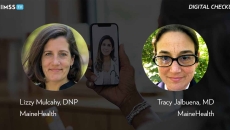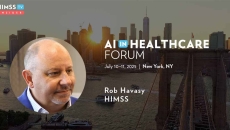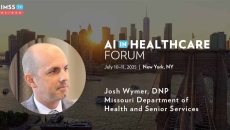Operations
Kenrick Cato, nurse scientist, pediatric data and analytics, Children's Hospital of Philadelphia, says that nurses are excited about AI but are cautious and while they want help from AI, they don't want AI to do their job.
Megan Zakrewsky, VP of product for clinical data exchange at Veradigm, discusses how automating payer data exchange and reducing desktop crowding for providers supports decision-making and reduce burnout.
The company will use the funds to open a new headquarters in the Bay Area, scale its reach and platform, and expand its workforce.
WakeMed Health & Hospitals IS project manager Elizabeth Murumalla discusses the health system's deployment of genAI and predictive modeling and its collaboration with Epic to manage challenges.
Today, 60% of all healthcare payments are in some form of value-based care if you include fee for service with quality metrics for upside bonuses, says Dave Snow, CEO of Cedar Gate Technologies.
MaineHealth's Lizzy Mulcahy, DNP, and Dr. Tracy Jalbuena discuss the importance of sharing data with stakeholders and partners as well as how to get more patients involved and interested.
Challenges such as workforce shortages that are not getting any better and tight funding are driving the healthcare industry toward AI deployment, says Rob Havasy, HIMSS senior director of informatics strategy.
The company says the model excels in healthcare applications, outperforming previous models on real-world clinical tasks and is already being adopted by healthcare companies.
Clinicians need to have integrity with how they present AI tools to their teams, focusing on how those tools can solve problems, says Josh Wymer, chief health information and data strategy officer at the Missouri Department of Health and Senior Services.
When implementing AI-powered assistants and ambient technologies, it is essential to know if what you are buying is an actual assistant and if it has features beyond just clinical documentation, says Punit Soni, founder and CEO of Suki.









